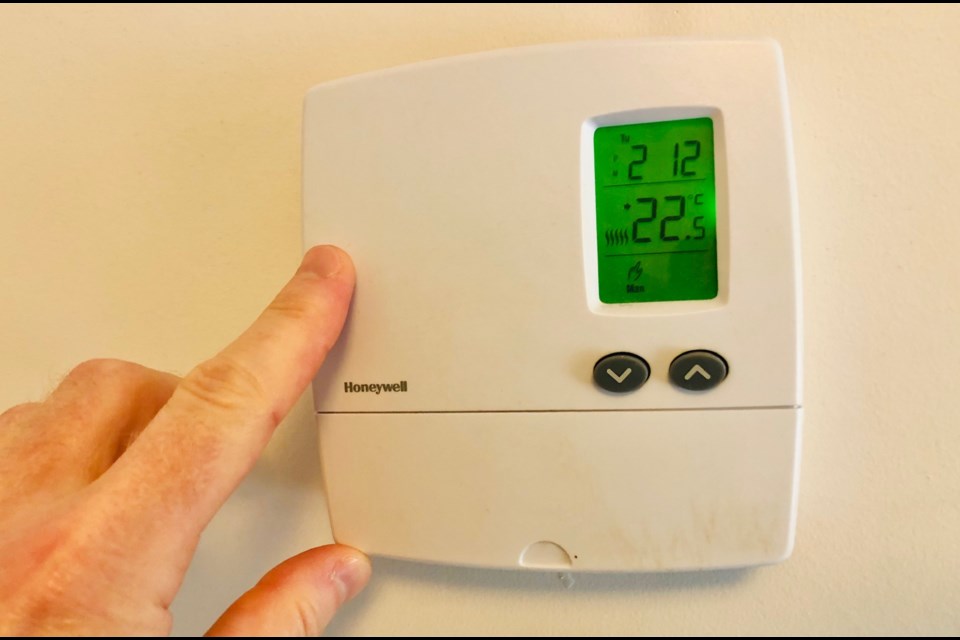THUNDER BAY – A pair of legal clinics are calling on the City of Thunder Bay to go further on protecting tenants as it revamps a set of property-related bylaws.
A proposed new minimum heat bylaw, which still requires city council approval, is intended to tighten enforcement of an existing requirement for landlords to provide adequate heat to tenants of 21 C.
The rules do not apply to landlords who can provide proof of an agreement that the tenant is responsible for heat.
A draft recently updated by city staff following public consultation would increase the powers of municipal enforcement officers to intervene in the case of tenant complaints, and boost financial penalties for landlords who break the rules.
The changes don't fully address concerns about how quickly complaints are resolved, however, according to the Kinna-Aweya and Lakehead University legal clinics.
The agencies are also calling on the city to expand tenant protections to cover other vital utilities like power and water.
The city unveiled an initial draft of the new minimum heat bylaw, along with others on yard maintenance, property standards, and vacant buildings, in May.
That first draft came under fire for what advocates said were unreasonable requirements that would make it challenging for tenants to file complaints.
An updated draft presented to city council earlier this week addressed several of those concerns.
Tenant advocates said they welcome those changes, but are still hoping the city will approve more significant protections before council votes on approval on July 27.
Those protections are more important than ever, said Sally Colquhoun, coordinator of legal services with the Kinna-aweya Legal Clinic.
“It’s a big issue right now,” she said. “There’s aging housing stock in Thunder Bay, and the vacancy rate is really low,” making it harder for tenants facing problems to find alternate accommodations.
“They need to have a process that’s not too onerous for tenants to report property standards concerns.”
Since hearing public feedback on the minimum heat bylaw, the city removed a clause requiring tenants to produce a lease agreement to launch a complaint, and simplified rules that would have required tenants to provide numerous temperature readings from two separate thermometers.
The bylaw sets out financial penalties of between $300 and $5,000 for a first offence for individual landlords, and up to $10,000 for repeat offenders. For corporations, fines could range to $100,000 for repeat offences.
The bylaw also empowers the city to step in to maintain adequate heat in place of a landlord who has failed to do so. If the owner fails to pay the city back within 30 days, the cost would be added to the property’s tax bill.
Mike Maher, review counsel with Lakehead University Community Legal Services, believes that policy should be extended to all vital utilities, including power, water, and hot water.
“I think it’s equally as impactful on one’s health and safety if the power’s been shut off or the water’s been shut off,” he said. “This bylaw doesn’t address that at all, and there’s certainly room within the relevant provincial statutes for them to expand that mandate.”
“With the stroke of a pen and a few phone calls, you could literally keep the lights on and not create an emergency situation.”
It’s a relatively rare occurrence for landlords to leave those services cut off, “but when it does happen, it can be really devastating,” Maher said.
One example last year involving a local motel created an emergency situation for around 10 tenants, requiring intervention from social service agencies, he said.
The city’s licensing and enforcement manager Doug Vincent said the call for broader vital services protections is outside the scope of the heat bylaw, but promised the city will “engage with stakeholders to explore the viability of such additional requests.”
While Maher said he’s happy to see the city responding to feedback from the legal aid community, he’s still looking for more action.
“I’m hopeful there still is the appetite for considering that bylaw before it ultimately is adopted by council,” he said. “I’m sort of holding out that… we could see some of our proposed changes coming through in later versions of this draft.”
The city also tweaked a proposed new yard maintenance bylaw to allow more yard naturalization, after receiving significant public feedback on the issue



